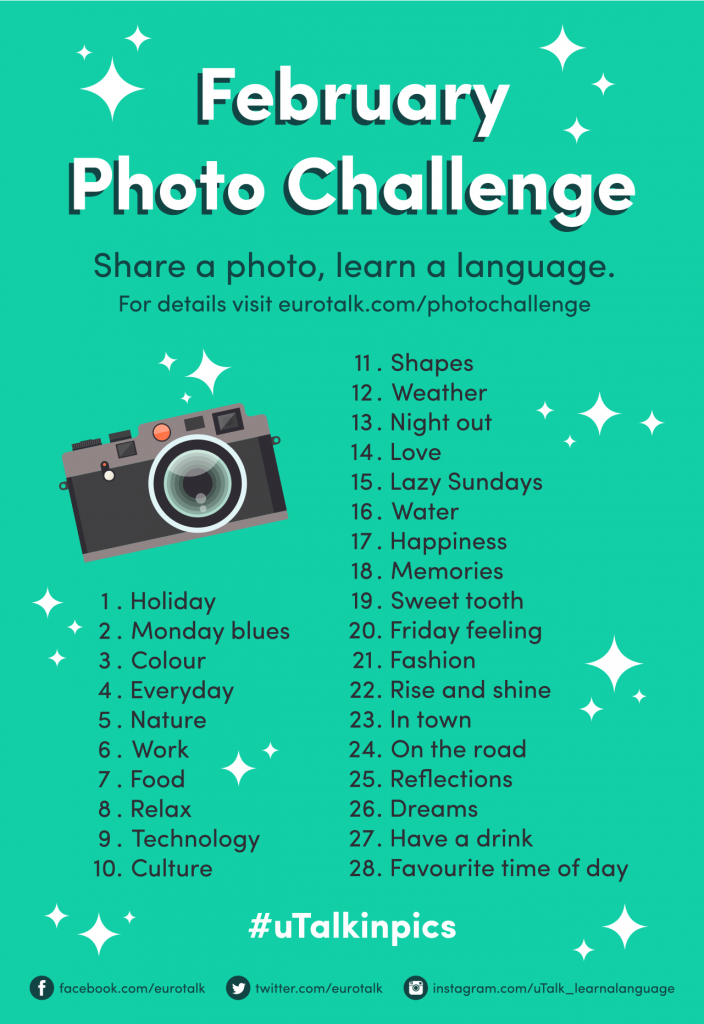10 reasons to visit… China
China is an amazing country, one that should be on every traveler’s must visit list. Few countries possess the wide variety of experiences you will find in the Middle Kingdom. While you are in this amazing country, be sure to visit the province of Yunnan, one of the lesser known, but most beautiful destinations within China. Here are ten terrific reasons why you should visit China, by Anna Smith, who studies Chinese in China at Keats School.
1. Breath-taking landscapes
As one of the largest countries in the world, China boasts incredibly diverse landscapes. Virtually whatever scenery you find most beautiful, you will find it in China. From the Northwest deserts to the Southeast seacoast, high mountain ranges to fertile plains, the frozen beauty of Harbin to the lush warm tropics of Xishuangbanna, China has it all. Hangzhou is famous for its stunning West Lake views. Suzhou has beautiful garden views and winding rivers with traditional architecture. And Hainan is the tropical paradise of the Orient; known as the ‘Eastern Hawaii’; it is China’s own paradise island.
2. Wonderful people
As the most populous nation in the world, China has plenty of people to meet. Chinese people generally love Westerners, so most are quite friendly. Everywhere we go, people want to stop and chat and take pictures with us. You can meet some amazing people and hear many intriguing life stories in the Middle Kingdom.
3. Awesome language
To a native English speaker, Mandarin can seem intimidating because it is so different to European languages. But this uniqueness makes it all the more beautiful and amazing to experience. Chinese characters are stunningly beautiful. Listening to tonal Mandarin can be like experiencing a new kind of music for the first time. If you already playing with the thought of challenging yourself, then you should definitely check out these reasons to study Chinese at Keats School.
4. Incredible food
While known for its tea and rice, there is much more to Chinese cuisine than is commonly known by most Westerners. And this cuisine varies greatly by region. In the north, noodles are the most common meal staple, but in the south, almost everything is served over rice. Different regions, like Sichuan and Hunnan, are known for their unique spicy food, while coastal regions boast a variety of seafood. Some of the most fun and interesting foods to try are street foods, such as roasted sweet potatoes and Chinese barbecue, shao kao.
5. Rich history
Few places have such a vast and rich history as the Middle Kingdom. The Great Wall of China and the Terracotta Warriors are some of the most well known ancient tourist attractions. The Forbidden City and Temple of Heaven in Beijing are also must-see attractions to learn about Chinese history and culture.

Royal Palace, Lijiang. Ancient traditional buildings can still be easily seen in many cities in China.
6. Modern development
At the same time, China boasts some of the largest cities in the world and is becoming more modern everywhere you look. Nowhere else have I ever seen so many high rises or amazing skylines as in China. Shanghai epitomises modern day China, with the famous modern riverfront skyline known as the Bund, large European style buildings, and its particularly distinctive Pearl of the Orient tower.
7. Amazing markets and exciting products
True, China makes a wide variety of products that are exported all over the world, but they have many unique products as well. Fine silks, exquisite China tea sets, elaborately carved jade, and expensive aged tea are some of the most sought after high-priced commodities. But Chinese Calligraphy, bamboo baskets, traditional Chinese knots, and other handcrafted items are distinctly beautiful as well. Provinces in the southwest of China have a wide variety of unique items hand crafted by the many minorities within its borders.
8. Fascinating diversity
One of the most amazing things about China is the variety of experience that can be enjoyed in one place. Old and new, sweet and spicy, rough and smooth, all combine into a rich cultural tapestry. Because of its ethnic and topographical diversity, Yunnan holds incredible diversity in one province.
9. Mind-blowing memories
Because there are so many unique and diverse things to experience, a trip to China is sure to create some incredible memories. These experiences will travel with you for the rest of your life. My family and I have experienced so many wonderful memories. Especially exciting to my young boys are eating jiaozi and watching fireworks during Spring Festival. Our experiences shape who we are as people. One of the best reasons to visit any new place is to literally expand your horizons, as it can change your thoughts and life. China’s incredible variety allows you to enjoy a multitude of new experiences and will forever change you.
10. Charming calligraphy
The ancient art of Chinese calligraphy cannot be fully appreciated without visiting China and seeing masters create their works of art in person. Even in the smallest shop, a true master can create amazing works of art. Words become art to be enjoyed be all, even if you don’t understand the meaning. But there are many places where you can learn famous Chinese sayings and begin to learn Chinese calligraphy for yourself, which deepens your admiration for its beauty even more. Being able to write in Chinese is a very valuable skill, but often feels impossible to learn. Once you understand the fundamentals, you will see that this is indeed something that you can learn.
Anna Smith
You can’t beat visiting China for learning the language – but before you go, remember to learn a few basic words with uTalk to get you started.
The power of song in language learning
Everyone has individual tips and specific techniques on how to learn a language quickly and effectively, ranging from immersing yourself in the culture of the language to listening to hours of vocabulary when asleep. During my final year of secondary school I had to learn French, to a very high standard, in around six months, so was more than willing to try any tip that people provided, however ridiculous they initially sounded. One of the most successful of these recommendations was listening to familiar songs in French. This began with Disney songs, including those from The Lion King and The Little Mermaid, and then later transitioned into pop songs ranging from Bruno Mars to Celine Dion.
 The key to this method of learning is being familiar with the lyrics, and subsequently being able to attribute each lyric you hear to the corresponding line in English. Whilst instant translation can normally be a struggle, the tune and the story told through the song aid a learner’s ability to translate much more quickly, and eventually remove the need to translate at all. By the time the song has been played for the fifth or sixth time, the language becomes familiar and instinctively understood. Listening to The Lion King on repeat for an hour, as instructed by my French teacher, means that I will never forget the word for ‘king’ in French.
The key to this method of learning is being familiar with the lyrics, and subsequently being able to attribute each lyric you hear to the corresponding line in English. Whilst instant translation can normally be a struggle, the tune and the story told through the song aid a learner’s ability to translate much more quickly, and eventually remove the need to translate at all. By the time the song has been played for the fifth or sixth time, the language becomes familiar and instinctively understood. Listening to The Lion King on repeat for an hour, as instructed by my French teacher, means that I will never forget the word for ‘king’ in French.
When learners become slightly more confident in their language, it is a great step to listen to a few songs which were originally written in the language being learnt. Obviously even the complete beginner is welcome to listen to native songs, but it can seem very overwhelming at first. Songs tend to move a lot quicker than normal conversation, and so it’s very easy to get lost in the speed of the lyrics and not take a lot in. However perseverance, as with any aspect of language learning, is key. Find a song that is relatable and enjoyable and listen to it a few times. If necessary the English translations for pretty much every song are available somewhere on the internet, and can help the initial process along. This process is how I discovered a genuine passion for French jazz, led by the multilingual Ben L’oncle Soul.
Have you incorporated songs into your language learning, or even discovered a passion for songs in another language? Let us know!
Kirsty
—
Want to join our blogging team? Email liz@eurotalk.com to find out more.
8 ways to remember new vocabulary
Let’s start with a bold statement: everyone is good at languages.
I know lots of people are probably disagreeing with me right now. But the fact is, we all learnt our own language, so technically we should be able to learn another one. Right?
Of course there are lots of elements to becoming fluent in another language. Grammar. Sentence construction. Tones (for some languages). Perfecting your accent. Reading. Writing. Learning colloquial expressions. I could go on.
But let’s start at the beginning. Before you tackle any of this daunting list, you need to learn some words, or you’ll never get anywhere. And for a lot of people, a little bit of vocabulary is often enough to get by with – I survived a weekend in Naples with just a handful of essential Italian words, like ‘please’, ‘thank you’, ‘water’ and ‘cake’. (What do you mean, that’s not an essential word?)
And having spent January learning German with the uTalk app, I now feel like I could at least make myself understood in a restaurant, a shop, the hospital – although let’s hope that’s not necessary! – and I also know how to buy a train ticket or ask for the nearest cash machine. I might be far from fluent, but this is a big step for someone who knew no German at all a little over a month ago.
So, learning vocab is important. But what happens if you’re not very good at remembering stuff? Another language can look pretty terrifying at first, particularly if it’s one that bears no resemblance at all to your own. So here are a few tips for memorising new words.
The facial expressions are optional…
Start with the basics
This probably makes sense anyway – why would you learn how to say ‘Do you prefer reading or TV?’ before you’ve figured out ‘Hello’? But it’s amazing how much of a boost it is just to have a few simple words under your belt. That way, you know at the very least, you can greet someone in their own language, even if you don’t know how to say anything else.
Take it a bit at a time
Don’t try and learn everything at once. Even if you remember it at the time, by the next day your brain will almost certainly have rebelled and forgotten it all. So break it down into topics, and focus on one a day, or a week – whatever works best for you – remembering to come back to it at regular intervals to revise and make sure it’s all still in there.
Try to link it to a memory
When I find myself in a real-life situation, I try to think of how to describe it in the language I’m learning. The other morning, for example, when my train was delayed, I amused myself by remembering how to say it in German. (Yes, I’m that cool.) And now when I think of that phrase, it springs more readily to mind because I can imagine shivering on the station platform, waiting for a train that may or may not show up. It did… eventually.
Associate words with images
Another good tip – try and link words to an image or object in your mind, as it makes them easier to recall later. Even better, stick notes on things you see every day, so that when you need the word you can visualise the object with its translation attached.
Make it a game
This could be a game against someone else – see who can remember the most words, you or your friend – or against yourself, but it’s amazing how effective it can be at hardwiring the vocabulary into your brain. And the best bit is you don’t even need to win the game to be successful… The memory game in uTalk is notoriously difficult, particularly if your memory isn’t the best. I struggled with the fruit and vegetables sections, for some reason; I just couldn’t remember where they all were when the cards were covered, and after the tenth attempt, I was ready to throw my phone across the room. But by the time I was done, I knew all the names of the fruits and vegetables forwards and backwards, and can’t see myself forgetting them any time soon.
Try and connect it to your own language
Even if the language you speak every day is completely different to the one you’re learning, use your imagination. For ‘I had a good time’, which is ‘Mir hat es sehr gut gefallen’ I found the only way to remember it was to think of it as ‘my hat is very well fallen’. It makes no sense, but it works for me!
Talk to other people
Sometimes, telling someone else how to say something can help to cement it in your mind, even if they have no idea what you’re saying. I’ve been cheerfully saying random German words to my startled family and friends for a month now, and although most of them have no idea what I’m talking about, it helps me to say the words aloud to someone other than myself.
Study before you go to sleep
I don’t know if this will work for everyone, but I found it was quite effective. By revising the vocabulary at night before I go to sleep, I find it’s fresh in my mind when I wake up. Probably not recommended if you have trouble switching your brain off at night (not something I have a problem with, clearly).

Does anyone have any other tips for remembering vocabulary?
Liz
The uTalk language challenge – how did you do?
The uTalk language challenge for January comes to an end on Saturday, and we’ve loved hearing about everyone’s progress! Check back here next week to see how we all got on here in the office (trust me, you won’t want to miss that), but in the meantime, we asked a few of our most enthusiastic competitors to tell us how they got on.
Has anyone else taken part in the uTalk challenge? Did you enjoy it, and most importantly will you be continuing with your new language? We’d love to hear from you, so please share in the comments 🙂 And if you missed it this month, it’s never too late to start – uTalk is available from the App Store, and you can start learning your first essential words completely free.
Don’t miss our February photo challenge, which kicks off on Sunday!
Now over to our uTalkers 🙂
Ingrid, learning Serbian
I’ve really enjoyed doing the challenge. Serbian is a language I’ve wanted to get to grips with for a long time for quite a bizarre reason (it involves a love of the Eurovision Song Contest!) but I haven’t really known where to start.
The app’s been great, although I’d recommend using it on an iPad rather than an iPhone if you can. Oh, and the range of languages available is amazing!
It’s been slow-going – well it’s a tricky language! – I tried to do some in my lunch-break and on my commute but it was generally too noisy to concentrate. I have a trip to Belgrade planned for early April and it would be so nice to communicate on even the most basic level in their own language, so I’ll definitely be keeping it up.
Patricia, learning Icelandic
My name’s Patricia and I’m from Montreal, Canada. I’m the happy owner of a wonderful Icelandic horse, Léttfeti. I’ve been riding Icelandic horses for four years and I’ve been to Iceland. And I absolutely love Björk 🙂 I took up the uTalk challenge so I could begin to learn more about the Icelandic Horse breed, about Icelandic riding and about Iceland in general. I hope to go back there soon.
The uTalk app is a whole lot of fun, filled with useful words and phrases. I particularly enjoyed repeating the words and phrases after the native speakers and then hearing my own voice. What a great tool to gain confidence and improve pronunciation! I also really liked the Iceland module, which contained many words and phrases pertaining to things that are specific to Iceland.
The app is very visually pleasing. It works offline, which is great for learning on planes, subways and other areas without internet. This app can also be used as an offline dictionary, which I find particularly useful. Thank you for this opportunity and I’m looking forward to the next Challenge!
@EuroTalk I’m getting the hang of it! The Icelandic pronunciation is so much fun! #NewYearNewuTalk pic.twitter.com/znHaX1hNy6
— Patricia Ochman (@speedbird_o) January 20, 2015
Alex, learning Romanian
I found it really fun learning some basic Romanian, especially because I’ve been able to greet Ioana each day saying ‘Buna Ziua’, and trying out a few random words on her. I found the speaking and recall games the most useful as you can check you actually know the words, rather than passively recognising them. The memory game, on the other hand, is the bane of my life as I always manage to forget where one thing is and miss the full score. Overall, I’ve found uTalk really fun and easy to use at the gym while I’m on the bikes or during my lunchbreak.
Jacqui, learning Croatian
I first discovered EuroTalk when my children were involved in the Junior Language Challenge in 2010, and, as a language graduate, was very impressed with how easy it was to master the basics. Since then, I have never quite prioritised the time to learn a new language myself, so when I heard about this month’s challenge for adults, it was just a matter of picking which one to try.
Why Croatian? It’s a country I quite fancy visiting, and as I’ve never attempted a Slavic language before, it seemed like a worthy contender for the challenge. Come 1st January, it soon became clear to me that Slavic languages do not have much immediately in common with either Romance or Germanic ones, and it often felt more like a string of tongue-twisters with some different accented letters to add into the mix for good measure. Daunting, yes, but I wasn’t going to let it beat me. I discovered that standing in the middle of the room and declaiming the words in theatrical fashion was quite effective!
After a month, I’ve made great progress. I haven’t earned maximum points (I’m on just over 4000), but I have managed to learn a lot more than I thought I would, even waking up some mornings with various phrases springing to mind! This achievement wouldn’t have been possible without something like the uTalk app. The approach of listening and repeating with a few simple games just works at this level of language acquisition.
The good news for me is that I’ve now booked a short break to Croatia in the summer – make mine a ‘čaša šampanjca, molim vas’.
Katherine, learning Czech
I chose to learn Czech as it was a completely new language to me, and I will be visiting there later in the year, so it will be fun to try out a few phrases!
I have found the app quite addictive – as soon as I’ve got a good score in one topic I want to get started on another one! The games really help you to learn quickly, and although I can’t pretend to remember every word, it will be easy to brush it up again later. So, a great challenge, and good fun!
The EuroTalk February photo challenge
Following the success of this month’s uTalk challenge, we’ve decided to have another one! But this time it’s open to everyone, and hopefully requires a bit less brain strain…
Introducing the EuroTalk February photo challenge!
How does the challenge work?
1. Each day, starting from 1st February, you’ll get a new theme, and you need to share a photo that reflects that theme on one or more of your social networks – more on that in a second. Try and interpret the theme in a fun, creative way, as we’ll be sharing our favourites over the course of the month, choosing a Photo of the Day each day and selecting an overall winner at the end of the month.
2. When you share your photo, tell us how to say whatever’s in your picture, in another language. It can be any language you like; you can even do a different one every day if you want to, as long as it’s not your own. And remember to tell us which language it is too!
3. Use hashtag #uTalkinpics to let everyone (including us!) know you’re taking part in the challenge.
Example:
My photo for #Holiday – sunset, or der Sonnenuntergang in German 🙂 #uTalkinpics
Where should I share my photos?
4. You can share your photos on whichever social network you like – Facebook, Twitter, Pinterest, Instagram, anywhere… But to be considered for Photo of the Day and overall winner, you’ll need to use one of the following:
- Tweet us @EuroTalk
- Tag us on Instagram: @uTalk_learnalanguage
- Post on our Facebook page
- Email your photo to us at challenge@eurotalk.com if you don’t belong to any social networks
And remember to use hashtag #uTalkinpics
What if I miss a day?
5. If you miss a day, or don’t find out about the challenge until it’s already started, it’s no problem. You can catch up by posting more than one picture per day – or just skip that day altogether and carry on.
How can I win?
6. We’ll choose our Photo of the Day the following morning (or possibly on Monday for photos submitted over the weekend), to allow entries right up to the end of the day from every time zone. This will appear on Facebook, Twitter and Pinterest, as well as in a weekly round-up here on the blog, so be ready to share your glory with the world!
7. At the end of the month, we’ll choose our overall winner to receive a cool prize. This will be someone who we feel has really got into it and had some fun. The winner will be chosen by the EuroTalk team and our decision is final 🙂
Spread the word!
8. Please share the challenge with friends, and let’s get the world talking lots of different languages…
Good luck, and have fun – we can’t wait to see your photos!











